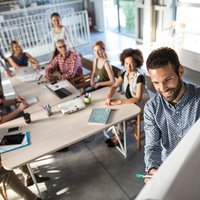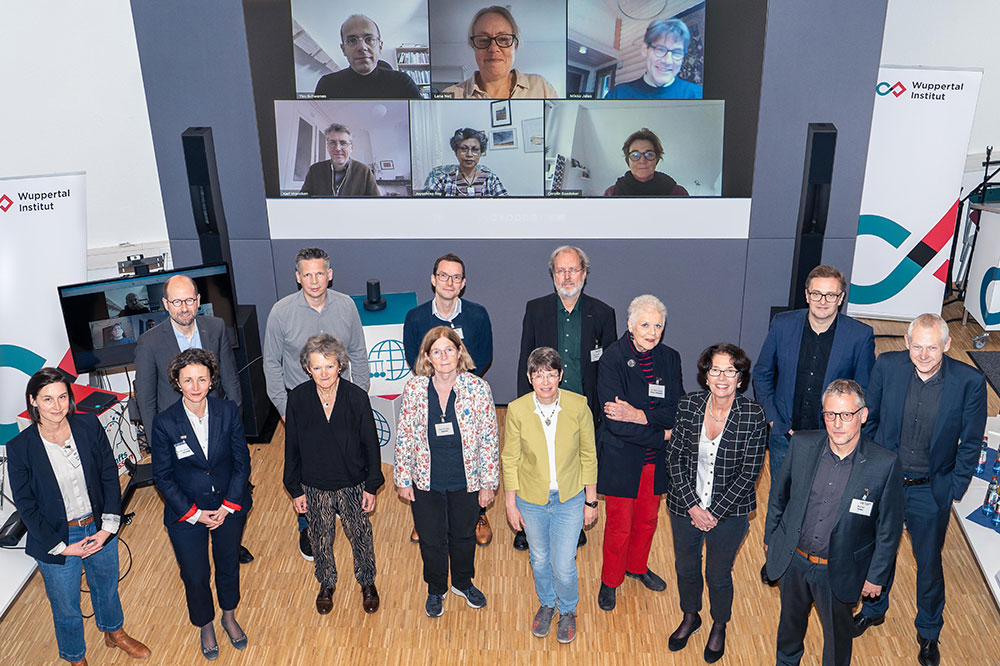International Advisory Board: Focused on Future Impulse and Upcoming Work Phase
Annual meeting of the Wuppertal Institute's International Advisory Board met in hybrid format in Wuppertal in mid-October

Annual meeting of the Wuppertal Institute's International Advisory Board met in hybrid format in Wuppertal in mid-October


The International Advisory Board (IAB) met in a hybrid format in Wuppertal on 17 and 18 October 2022. In addition to the introduction of new members and the farewell of long-standing members, the focus was on the Zukunftsimpuls "Transformationslücke schließen – Handeln unter Hochduck". The deepening of this Zukunftsimpuls, which was published in September 2022 (only in German), formed the content focus of this year's meeting. The implementation challenges in the areas of hydrogen economy, building renovation and heat transition, sustainable consumption patterns and circular economy outlined therein were deepened and discussed in a working group phase with the advisory board members and the Institute's experts.
The working phase of the IAB was introduced by two impulse presentations by the members of the advisory board: Prof. Dr. Miranda Schreurs (Professor at the Technical University of Munich) outlined the effects of the geopolitical situation on the implementation of the sustainability shift and the achievement of climate protection goals. Prof. Dr. Ellen Matthies (Otto von Guericke University Magdeburg) focused her input on the importance of the social impacts of a transformation process from a psychological perspective. The subsequent discussion in the four working groups focused on these overarching questions with a view to the four fields of action.
Of 15 advisory board members, five were on site in Wuppertal, seven participated virtually. Among them were six new members, whom the Wuppertal Institute welcomed at the beginning of the meeting:
- Prof. Dr. Ellen Matthies, Head of Department at Otto von Guericke University Magdeburg
- Prof. Dr. Lena Neij, Professor at the University of Lund (Sweden)
- Prof. Dr. Markus Reuter, Professor at Curtin University (Australia) and at the Technical University Bergakademie Freiberg (Germany)
- Prof. Dr. Tim Schwanen, Professor at the University of Oxford
- Prof. Dr. Annette Töller, Professor at the Open University of Hagen
- Prof. Dr. Oliver Zielinski, Head of Research at the German Research Centre for Artificial Intelligence (DFKI) and Professor at the Carl von Ossietzky University Oldenburg
Subsequently, three long-standing members of the advisory board were also bidden farewell: After nine years on the Advisory Board, Prof. Dr. Lars Nilsson, Professor at Lund University in Sweden, Prof. Dr. Claudia Pahl-Wostl, Professor at the University of Osnabrück, and Prof. Dr. Miranda Schreurs will leave the Advisory Board of the Wuppertal Institute this year. As President and Scientific Managing Director of the Wuppertal Institute, Prof. Dr.-Ing. Manfred Fischedick, thanked the departing members for their nine years of dedicated scientific advice and support.
Afterwards, the Institute's management presented the current focal points of work as well as the presentation of central challenges. For the division-specific exchange, the members of the advisory board exchanged information with the divisions in groups to answer individual questions.
